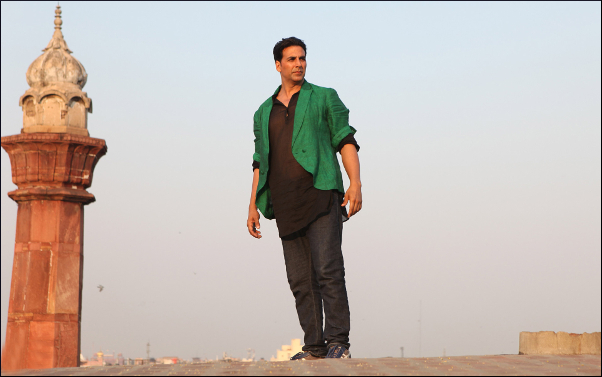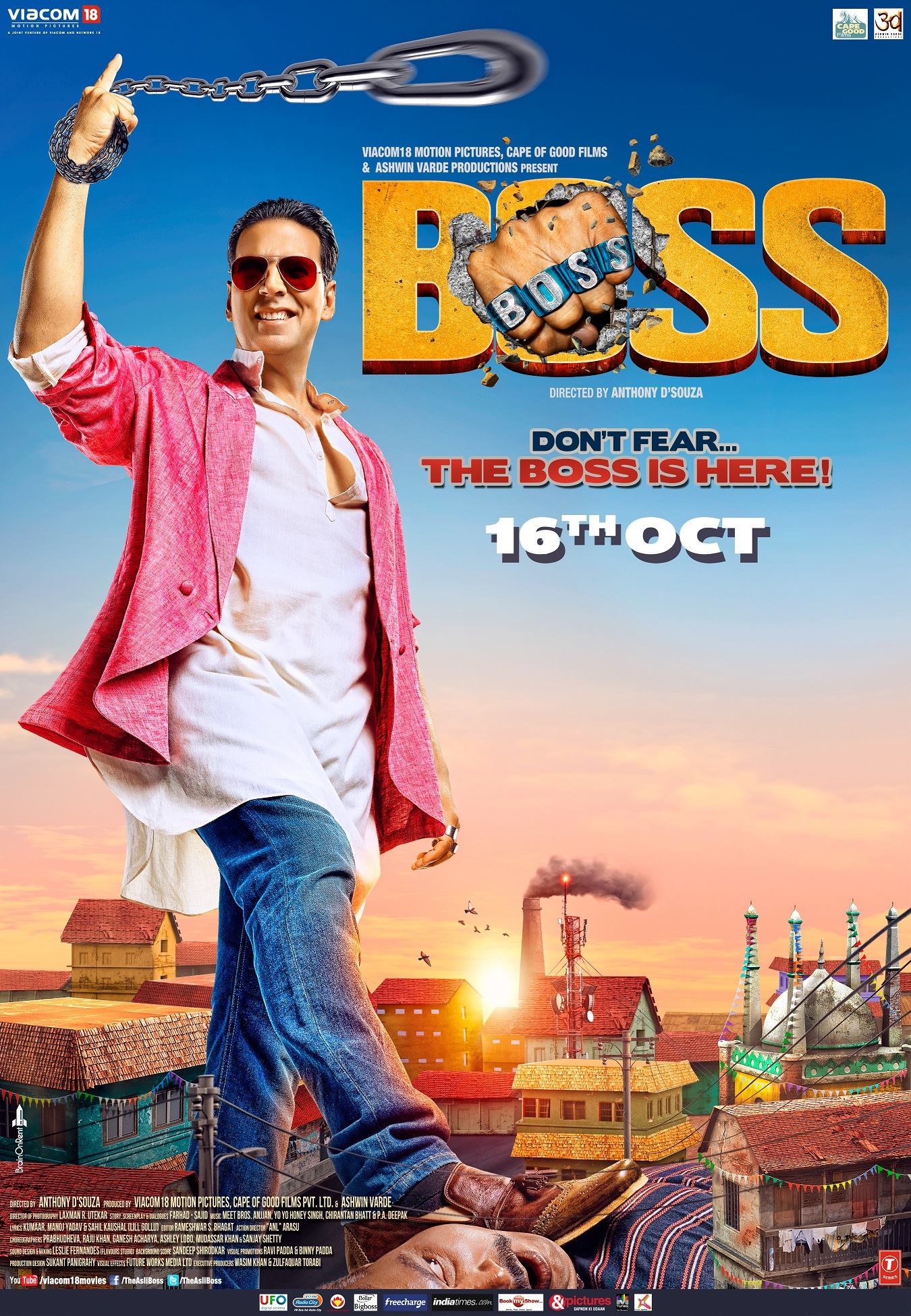Blood, punches, and out-of-this-world kicks. There’s nothing in Bollywood quite like an Akshay Kumar film. With his grandiose presence in larger-than-life movies, he is a “hero” in the truest sense of the word, and this holds true for his 2013 film Boss, where he performs alongside none other than legendary actor Mithun Chakraborty.
"There’s nothing in Bollywood quite like an Akshay Kumar film."
Satyakant Shastri (Chakraborty) has two sons, Surya and Shiv. The young Surya always seems to be landing himself in trouble, eventually leading Shastri to throw him out of the house. The movie then jumps ahead some years later, when Shiv (Shiv Pandit) is in his twenties and in love with Ankita (Aditi Rao). Unfortunately for Shiv, Ankita has a brother, Ayushman, a police officer. In typical Bollywood fashion, Ayushman does not approve of Shiv and would prefer Ankita marry the Home Minister’s idiotic son, Vishal. To accomplish this, Ayushman frames Shiv for rape and has him arrested.

Meanwhile, we learn that Surya, after leaving his father’s house, was adopted by a transport business man who goes by the name of “Big Boss.” He’s into dirty dealings and constantly gets people beaten up, albeit in that glamorized fashion typical of Hindi movies, in which the characters don’t get arrested for their actions. The adult Surya (Kumar) has, in turn, become like his adopted father, even using the alias of “Boss.” Both live in a huge mansion and are followed around by several men, who can quickly get into formation to create a human throne for Boss (yes, this really happens, and yes, it’s actually quite funny).
"Surprisingly, this film, which is mostly about cracking heads and delivering threatening lines, also offers a bit of redemption."
After about fifteen fight scenes, a handful of dramatic entrances by Boss, and some very colorful songs, one can guess what happens. The two brothers reunite, their father forgives Surya, and Shiv and Ankita live happily ever after. The movie is over-the-top, and one can only enjoy it by checking all logic at the door. Then again, it’s an Akshay Kumar film! However, it’s not only about one man’s ability to take on ten gangsters at once: Kumar manages to deliver some cheesy dialogue, too! Alas, most of his lines involve Boss referring to himself in third person, but that’s alright. At one point, he says, “Boss ka khoon bolta nahi, khaulta hai… aur jab yeh khaulta hai… toh yeh Boss eke k ko phodta hai” (The blood of Boss doesn’t speak, it boils… and when it boils… then this Boss will break each of you). The word “phodta” (breaks) only applies to certain things (in this case, a person). You would not use this word if anything made out of glass were to break. Instead, you would employ the term “tuta,” which is the Hindi equivalent of the English “shatter.”
Surprisingly, this film, which is mostly about cracking heads and delivering threatening lines, also offers a bit of redemption. Most notably, there is one quote from Big Boss, ironically the one who trained Boss in his dubious ways: “Har sant ka ek beeta hua kal hota hai, aur har paapi ka ek aane waala kal hota hai” (Every saint has a past, and every sinful person has a future to come).


